Choosing a business checking account isn’t as straightforward as opening a personal checking account. And a business checking account can have an impact on your company’s bottom line. The right choice can make managing your expenses, cash flow and bills easy while establishing a financial separation between business and personal funds. Many business checking account options include useful tools to streamline bookkeeping, a competitive annual percentage yield and business-specific perks like automatic ATM fee refunds.
The downside to business checking accounts, however, is that these accounts can come with fees and may require a minimum deposit to get started. And if you’re an up-and-coming business, reaching the high balances needed to waive the charges may be hard.
We’ve compiled a list of the top business checking accounts, focusing on APYs offered, low or no fees, low minimum balance requirements and additional perks, like introductory bonuses.
CNET’s list of top business checking accounts consists of banks and credit unions insured by the Federal Deposit Insurance Corporation and the National Credit Union Administration, respectively, offer fee-free business checking accounts and waive fees with reasonable balance requirements. In addition, some accounts provide attractive bonuses.
Best business checking accounts
| Name | APY | Minimum Initial Deposit | Bonuses | Locations | Fees |
|---|---|---|---|---|---|
| BlueVine | 2.00% | $0 | N/A | Online-only | $0 |
| LendingClub | 1.50% | $100 | 1% cash back | Online-only | $0 with a $500 balance |
| American Express Bank | 1.30% | $0 | 30,000 points | Online-only | $0 |
| Axos Bank | 1.01% | $0 | $200 | Online-only | $0 |
| First Internet Bank | 0.50% | $0 | N/A | Online-only | $0 |
| Bethpage Federal Credit Union | 0.20% | $5 | N/A | 30 branches in New York | $0 |
| TIAA Bank | 0.10% | $1,500 | N/A | Online-only | $0 |
| Navy Federal Credit Union | 0.01% | $250 | N/A | 350 branches | $0 |
| U.S. Bank | 0% | $100 | $400 | 2,251 branches | $0 |
| Chase | 0% | $0 | $300 | 4,700 branches | $0 with a $2,000 balance |
APYs as of March 13, 2023.
Top business checking accounts

 \n ","topic":"","ttag":"","searchDim":"article-body|listicle|image","variant":"article-body|listicle|image","viewguid":"","event":"listicle|image|1","correlationId":"","_destCat":"https:\/\/www.bluevine.com\/business-checking\/","productName":"BlueVine business checking","formatType":"IMAGE","location":"LIST","position":1,"sku":"","dwLinkTag":"article-body|listicle|image","selector":"#article-body #listicle-cd7aea23-ac52-4843-a7d3-08f7fab419b2 .itemImage","shortcodeId":"cd7aea23-ac52-4843-a7d3-08f7fab419b2","shortcodeType":"listicle","vendor":"BlueVine","manufacturer":"","coupon":"","productPrice":"","quantity":""}}” rel=”noopener nofollow” target=”_blank”>
\n ","topic":"","ttag":"","searchDim":"article-body|listicle|image","variant":"article-body|listicle|image","viewguid":"","event":"listicle|image|1","correlationId":"","_destCat":"https:\/\/www.bluevine.com\/business-checking\/","productName":"BlueVine business checking","formatType":"IMAGE","location":"LIST","position":1,"sku":"","dwLinkTag":"article-body|listicle|image","selector":"#article-body #listicle-cd7aea23-ac52-4843-a7d3-08f7fab419b2 .itemImage","shortcodeId":"cd7aea23-ac52-4843-a7d3-08f7fab419b2","shortcodeType":"listicle","vendor":"BlueVine","manufacturer":"","coupon":"","productPrice":"","quantity":""}}” rel=”noopener nofollow” target=”_blank”>
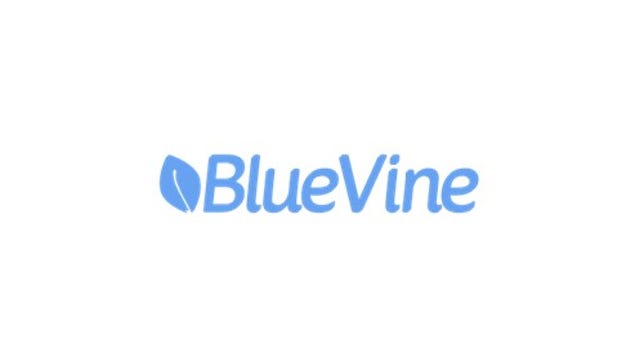

BlueVine
- APY: 2.00% on balances up to $100,000
- Minimum initial deposit: $0
- Number of locations: Online only
Earn 2.00% interest with a BlueVine business checking account when you spend either $500 per month with the BlueVine Business Debit Mastercard or receive $2,500 in customer payments. Business checking customers receive unlimited transactions, overdraft protection and QuickBooks integration included for no monthly fee. There are 37,000 surcharge-free ATMs available to customers with a BlueVine business checking account and 90,000 retail locations that accept cash deposits.

 \n ","topic":"","ttag":"","searchDim":"article-body|listicle|image","variant":"article-body|listicle|image","viewguid":"","event":"listicle|image|2","correlationId":"","_destCat":"https:\/\/gobank.lendingclub.com\/tailored-checking\/","productName":"LendingClub Tailored Checking","formatType":"IMAGE","location":"LIST","position":2,"sku":"","dwLinkTag":"article-body|listicle|image","selector":"#article-body #listicle-e399f631-176e-4cfd-95e8-26592964b2aa .itemImage","shortcodeId":"e399f631-176e-4cfd-95e8-26592964b2aa","shortcodeType":"listicle","vendor":"LendingClub","manufacturer":"","coupon":"","productPrice":"","quantity":""}}” rel=”noopener nofollow” target=”_blank”>
\n ","topic":"","ttag":"","searchDim":"article-body|listicle|image","variant":"article-body|listicle|image","viewguid":"","event":"listicle|image|2","correlationId":"","_destCat":"https:\/\/gobank.lendingclub.com\/tailored-checking\/","productName":"LendingClub Tailored Checking","formatType":"IMAGE","location":"LIST","position":2,"sku":"","dwLinkTag":"article-body|listicle|image","selector":"#article-body #listicle-e399f631-176e-4cfd-95e8-26592964b2aa .itemImage","shortcodeId":"e399f631-176e-4cfd-95e8-26592964b2aa","shortcodeType":"listicle","vendor":"LendingClub","manufacturer":"","coupon":"","productPrice":"","quantity":""}}” rel=”noopener nofollow” target=”_blank”>


LendingClub
- APY: 1.50% on balances up to $100,000
- Minimum initial deposit: $100
- Number of locations: Online only
LendingClub’s Tailored Checking is an online-only checking account. The mobile app is available for iOS and Android users and syncs to Mint, Quickbooks and Quicken accounts. Business customers earn 1.50% APY on balances of up to $100,000 and 0.10% APY on balances above that amount. The Tailored Checking debit card earns 1% cash back on qualifying purchases. There are no monthly fees associated with the account with an average monthly balance of $500 or more. LendingClub rebates all fees charged by out-of-network ATMs.

 \n ","topic":"","ttag":"","searchDim":"article-body|listicle|image","variant":"article-body|listicle|image","viewguid":"","event":"listicle|image|3","correlationId":"","_destCat":"https:\/\/www.americanexpress.com\/en-us\/business\/checking","productName":"American Express Business Checking","formatType":"IMAGE","location":"LIST","position":3,"sku":"","dwLinkTag":"article-body|listicle|image","selector":"#article-body #listicle-193f2266-5737-4610-82cc-a65269ece199 .itemImage","shortcodeId":"193f2266-5737-4610-82cc-a65269ece199","shortcodeType":"listicle","vendor":"American Express","manufacturer":"","coupon":"","productPrice":"","quantity":""}}” rel=”noopener nofollow” target=”_blank”>
\n ","topic":"","ttag":"","searchDim":"article-body|listicle|image","variant":"article-body|listicle|image","viewguid":"","event":"listicle|image|3","correlationId":"","_destCat":"https:\/\/www.americanexpress.com\/en-us\/business\/checking","productName":"American Express Business Checking","formatType":"IMAGE","location":"LIST","position":3,"sku":"","dwLinkTag":"article-body|listicle|image","selector":"#article-body #listicle-193f2266-5737-4610-82cc-a65269ece199 .itemImage","shortcodeId":"193f2266-5737-4610-82cc-a65269ece199","shortcodeType":"listicle","vendor":"American Express","manufacturer":"","coupon":"","productPrice":"","quantity":""}}” rel=”noopener nofollow” target=”_blank”>


Sarah Tew/CNET
- APY: 1.30% on balances up to $100,000
- Minimum initial deposit: $0
- Number of locations: Online only
American Express offers an online-only business checking account with a competitive rate and no monthly fees or minimum deposit requirements. Earn 30,000 points with at least $5,000 in deposits within the first 20 days, an average balance of $5,000 for 60 days and at least 10 qualifying transactions in the first 60 days. There are 37,000 surcharge-free ATMs available through the MoneyPass network. While there are no branches, American Express provides 24/7 live customer support. Mobile banking is available through its Business Checking App, but it’s only available via the iOS App Store.

 \n ","topic":"","ttag":"","searchDim":"article-body|listicle|image","variant":"article-body|listicle|image","viewguid":"","event":"listicle|image|4","correlationId":"","_destCat":"https:\/\/www.axosbank.com\/basicbusinesschecking","productName":"Axos Bank Basic Business Checking","formatType":"IMAGE","location":"LIST","position":4,"sku":"","dwLinkTag":"article-body|listicle|image","selector":"#article-body #listicle-a833614c-a9b7-4ce0-8c34-eedf05203986 .itemImage","shortcodeId":"a833614c-a9b7-4ce0-8c34-eedf05203986","shortcodeType":"listicle","vendor":"Axos Bank","manufacturer":"","coupon":"","productPrice":"","quantity":""}}” rel=”noopener nofollow” target=”_blank”>
\n ","topic":"","ttag":"","searchDim":"article-body|listicle|image","variant":"article-body|listicle|image","viewguid":"","event":"listicle|image|4","correlationId":"","_destCat":"https:\/\/www.axosbank.com\/basicbusinesschecking","productName":"Axos Bank Basic Business Checking","formatType":"IMAGE","location":"LIST","position":4,"sku":"","dwLinkTag":"article-body|listicle|image","selector":"#article-body #listicle-a833614c-a9b7-4ce0-8c34-eedf05203986 .itemImage","shortcodeId":"a833614c-a9b7-4ce0-8c34-eedf05203986","shortcodeType":"listicle","vendor":"Axos Bank","manufacturer":"","coupon":"","productPrice":"","quantity":""}}” rel=”noopener nofollow” target=”_blank”>
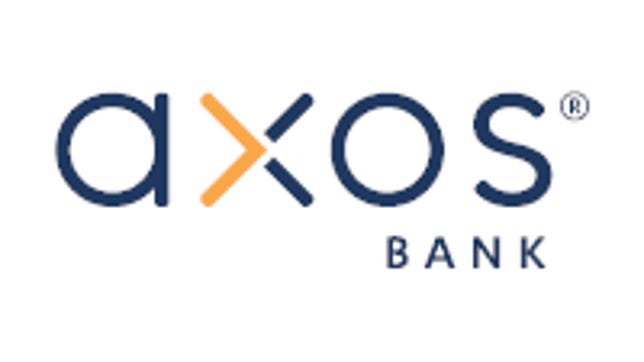

Axos Bank
- APY: 1.01%
- Minimum initial deposit: $0
- Number of locations: Online only
Axos Bank is an online-only bank offering a checking account best suited for small businesses with modest checking account needs. Customers can access live support 24/7. New businesses incorporated after June 1, 2020, qualify for a $200 account bonus. Businesses established prior to that date qualify for a $100 bonus. There’s no minimum deposit requirement to open an account, customers aren’t charged a monthly fee and they receive unlimited ATM reimbursement with the Basic Business Checking account.

 \n ","topic":"","ttag":"","searchDim":"article-body|listicle|image","variant":"article-body|listicle|image","viewguid":"","event":"listicle|image|5","correlationId":"","_destCat":"https:\/\/www.firstib.com\/business\/deposits\/small-business-checking\/","productName":"First Internet Bank Do More Business Checking","formatType":"IMAGE","location":"LIST","position":5,"sku":"","dwLinkTag":"article-body|listicle|image","selector":"#article-body #listicle-d9cd148a-3685-45e4-a7ef-a23b6a3621da .itemImage","shortcodeId":"d9cd148a-3685-45e4-a7ef-a23b6a3621da","shortcodeType":"listicle","vendor":"First Internet Bank","manufacturer":"","coupon":"","productPrice":"","quantity":""}}” rel=”noopener nofollow” target=”_blank”>
\n ","topic":"","ttag":"","searchDim":"article-body|listicle|image","variant":"article-body|listicle|image","viewguid":"","event":"listicle|image|5","correlationId":"","_destCat":"https:\/\/www.firstib.com\/business\/deposits\/small-business-checking\/","productName":"First Internet Bank Do More Business Checking","formatType":"IMAGE","location":"LIST","position":5,"sku":"","dwLinkTag":"article-body|listicle|image","selector":"#article-body #listicle-d9cd148a-3685-45e4-a7ef-a23b6a3621da .itemImage","shortcodeId":"d9cd148a-3685-45e4-a7ef-a23b6a3621da","shortcodeType":"listicle","vendor":"First Internet Bank","manufacturer":"","coupon":"","productPrice":"","quantity":""}}” rel=”noopener nofollow” target=”_blank”>
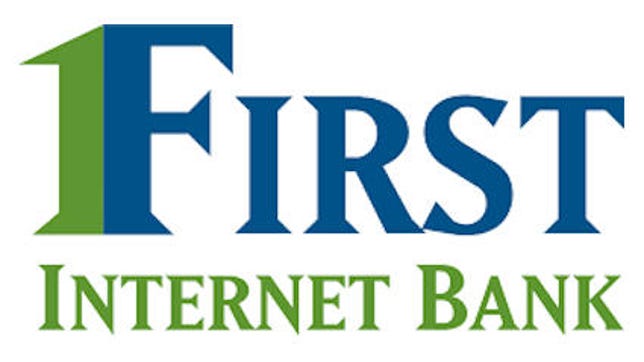

First Internet Bank of Indiana
- APY: 0.50% with average daily balances of $10,000
- Minimum initial deposit: $0
- Number of locations: Online only
First Internet Bank offers several online-only business bank accounts for small business owners. The Do More Business Checking is an interest-bearing account with no fees, no minimum balance requirements and unlimited transactions. Customers are reimbursed by up to $10 per month in ATM fees.

 \n ","topic":"","ttag":"","searchDim":"article-body|listicle|image","variant":"article-body|listicle|image","viewguid":"","event":"listicle|image|6","correlationId":"","_destCat":"https:\/\/www.bethpagefcu.com\/business\/banking\/checking.aspx","productName":"Bethpage Federal Credit Union Free Business Checking","formatType":"IMAGE","location":"LIST","position":6,"sku":"","dwLinkTag":"article-body|listicle|image","selector":"#article-body #listicle-403abe3f-da43-4179-be23-3a539a0f12ad .itemImage","shortcodeId":"403abe3f-da43-4179-be23-3a539a0f12ad","shortcodeType":"listicle","vendor":"Bethpage Federal Credit Union","manufacturer":"","coupon":"","productPrice":"","quantity":""}}” rel=”noopener nofollow” target=”_blank”>
\n ","topic":"","ttag":"","searchDim":"article-body|listicle|image","variant":"article-body|listicle|image","viewguid":"","event":"listicle|image|6","correlationId":"","_destCat":"https:\/\/www.bethpagefcu.com\/business\/banking\/checking.aspx","productName":"Bethpage Federal Credit Union Free Business Checking","formatType":"IMAGE","location":"LIST","position":6,"sku":"","dwLinkTag":"article-body|listicle|image","selector":"#article-body #listicle-403abe3f-da43-4179-be23-3a539a0f12ad .itemImage","shortcodeId":"403abe3f-da43-4179-be23-3a539a0f12ad","shortcodeType":"listicle","vendor":"Bethpage Federal Credit Union","manufacturer":"","coupon":"","productPrice":"","quantity":""}}” rel=”noopener nofollow” target=”_blank”>
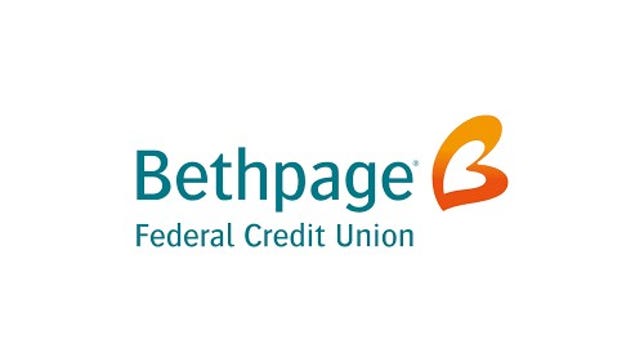

Bethpage Federal Credit Union
- APY: 0.20%
- Minimum initial deposit: $5
- Number of locations: 30 branches in New York
Bethpage Federal Credit Union has two types of business checking accounts. Membership is available to the public when you open an account with a $5 initial deposit. The Free Business Checking account doesn’t require a minimum balance to avoid monthly maintenance fees. There are no transaction fees. Online banking is available nationwide as the credit union only offers 30 physical branches in the state of New York.

 \n ","topic":"","ttag":"","searchDim":"article-body|listicle|image","variant":"article-body|listicle|image","viewguid":"","event":"listicle|image|7","correlationId":"","_destCat":"https:\/\/www.tiaabank.com\/business\/accounts\/small-business-checking","productName":"TIAA Bank Small Business Checking","formatType":"IMAGE","location":"LIST","position":7,"sku":"","dwLinkTag":"article-body|listicle|image","selector":"#article-body #listicle-03b90983-ccf4-46e3-b925-d1c671c7f60a .itemImage","shortcodeId":"03b90983-ccf4-46e3-b925-d1c671c7f60a","shortcodeType":"listicle","vendor":"TIAA Bank","manufacturer":"","coupon":"","productPrice":"","quantity":""}}” rel=”noopener nofollow” target=”_blank”>
\n ","topic":"","ttag":"","searchDim":"article-body|listicle|image","variant":"article-body|listicle|image","viewguid":"","event":"listicle|image|7","correlationId":"","_destCat":"https:\/\/www.tiaabank.com\/business\/accounts\/small-business-checking","productName":"TIAA Bank Small Business Checking","formatType":"IMAGE","location":"LIST","position":7,"sku":"","dwLinkTag":"article-body|listicle|image","selector":"#article-body #listicle-03b90983-ccf4-46e3-b925-d1c671c7f60a .itemImage","shortcodeId":"03b90983-ccf4-46e3-b925-d1c671c7f60a","shortcodeType":"listicle","vendor":"TIAA Bank","manufacturer":"","coupon":"","productPrice":"","quantity":""}}” rel=”noopener nofollow” target=”_blank”>


TIAA Bank
- APY: 0.10%
- Minimum initial deposit: $1,500
- Number of locations: Online only
TIAA Bank is the online banking arm of the Florida-based financial firm TIAA. It offers three business checking accounts. The Small Business Checking account specifically pays a competitive yield with a minimum $1,500 required to open. ATM fees are reimbursed up to $15 per month for balances of up to $5,000. ATM rebates are unlimited for checking account balances of more than $5,000.

 \n ","topic":"","ttag":"","searchDim":"article-body|listicle|image","variant":"article-body|listicle|image","viewguid":"","event":"listicle|image|8","correlationId":"","_destCat":"https:\/\/www.navyfederal.org\/services\/business\/checking-savings.html","productName":"Navy Federal Credit Union Business Checking","formatType":"IMAGE","location":"LIST","position":8,"sku":"","dwLinkTag":"article-body|listicle|image","selector":"#article-body #listicle-8be80ef9-62ab-4080-9320-98c59738f0a2 .itemImage","shortcodeId":"8be80ef9-62ab-4080-9320-98c59738f0a2","shortcodeType":"listicle","vendor":"Navy Federal Credit Union","manufacturer":"","coupon":"","productPrice":"","quantity":""}}” rel=”noopener nofollow” target=”_blank”>
\n ","topic":"","ttag":"","searchDim":"article-body|listicle|image","variant":"article-body|listicle|image","viewguid":"","event":"listicle|image|8","correlationId":"","_destCat":"https:\/\/www.navyfederal.org\/services\/business\/checking-savings.html","productName":"Navy Federal Credit Union Business Checking","formatType":"IMAGE","location":"LIST","position":8,"sku":"","dwLinkTag":"article-body|listicle|image","selector":"#article-body #listicle-8be80ef9-62ab-4080-9320-98c59738f0a2 .itemImage","shortcodeId":"8be80ef9-62ab-4080-9320-98c59738f0a2","shortcodeType":"listicle","vendor":"Navy Federal Credit Union","manufacturer":"","coupon":"","productPrice":"","quantity":""}}” rel=”noopener nofollow” target=”_blank”>
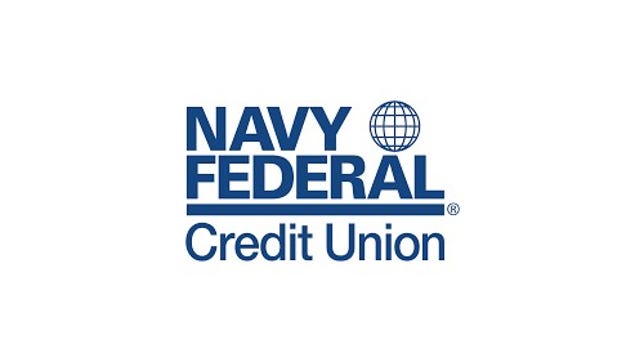

Navy Federal Credit Union
- APY: 0.01%
- Minimum initial deposit: $250
- Number of locations: 350 branches worldwide
Navy Federal Credit Union offers three types of interest-bearing business checking accounts. The Business Checking account is best for new businesses. It earns a modest 0.01% APY. Business Checking is free of monthly fees but charges a per-transaction fee for each nonelectronic transaction after 30 transactions. Membership is limited to members of the armed forces, Department of Defense employees and members of the National Guard.

 \n ","topic":"","ttag":"","searchDim":"article-body|listicle|image","variant":"article-body|listicle|image","viewguid":"","event":"listicle|image|9","correlationId":"","_destCat":"https:\/\/www.usbank.com\/business-banking\/business-bank-accounts\/business-checking-1.html","productName":"U.S. Bank Silver Business Checking","formatType":"IMAGE","location":"LIST","position":9,"sku":"","dwLinkTag":"article-body|listicle|image","selector":"#article-body #listicle-53bbb622-b4d1-4c17-9921-887fa59f038f .itemImage","shortcodeId":"53bbb622-b4d1-4c17-9921-887fa59f038f","shortcodeType":"listicle","vendor":"U.S. Bank","manufacturer":"","coupon":"","productPrice":"","quantity":""}}” rel=”noopener nofollow” target=”_blank”>
\n ","topic":"","ttag":"","searchDim":"article-body|listicle|image","variant":"article-body|listicle|image","viewguid":"","event":"listicle|image|9","correlationId":"","_destCat":"https:\/\/www.usbank.com\/business-banking\/business-bank-accounts\/business-checking-1.html","productName":"U.S. Bank Silver Business Checking","formatType":"IMAGE","location":"LIST","position":9,"sku":"","dwLinkTag":"article-body|listicle|image","selector":"#article-body #listicle-53bbb622-b4d1-4c17-9921-887fa59f038f .itemImage","shortcodeId":"53bbb622-b4d1-4c17-9921-887fa59f038f","shortcodeType":"listicle","vendor":"U.S. Bank","manufacturer":"","coupon":"","productPrice":"","quantity":""}}” rel=”noopener nofollow” target=”_blank”>


U.S. Bank
- APY: 0%
- Minimum initial deposit: $100
- Number of locations: 2,251
U.S. Bank, one of the 10 biggest US banks, offers five types of business checking accounts. With more than 2,000 branches, U.S. Bank combines plenty of physical locations with the convenience of mobile banking. The Silver Business Checking account is best for small businesses with basic banking needs that don’t expect a high volume of monthly transactions. There are no monthly maintenance fees and this account offers 125 free transactions per month. The Silver Business Checking account qualifies for a $400 bonus with a $3,000 deposit, enrollment in the mobile app and five qualifying transactions in the first 60 days. U.S. Bank customers have access to more than 41,000 surcharge-free ATMs using the MoneyPass network.

 \n ","topic":"","ttag":"","searchDim":"article-body|listicle|image","variant":"article-body|listicle|image","viewguid":"","event":"listicle|image|10","correlationId":"","_destCat":"https:\/\/www.chase.com\/business\/banking\/checking","productName":"Chase Bank Business Complete Checking","formatType":"IMAGE","location":"LIST","position":10,"sku":"","dwLinkTag":"article-body|listicle|image","selector":"#article-body #listicle-9407b00e-0196-45ae-a921-881b2c76872d .itemImage","shortcodeId":"9407b00e-0196-45ae-a921-881b2c76872d","shortcodeType":"listicle","vendor":"Chase Bank","manufacturer":"","coupon":"","productPrice":"","quantity":""}}” rel=”noopener nofollow” target=”_blank”>
\n ","topic":"","ttag":"","searchDim":"article-body|listicle|image","variant":"article-body|listicle|image","viewguid":"","event":"listicle|image|10","correlationId":"","_destCat":"https:\/\/www.chase.com\/business\/banking\/checking","productName":"Chase Bank Business Complete Checking","formatType":"IMAGE","location":"LIST","position":10,"sku":"","dwLinkTag":"article-body|listicle|image","selector":"#article-body #listicle-9407b00e-0196-45ae-a921-881b2c76872d .itemImage","shortcodeId":"9407b00e-0196-45ae-a921-881b2c76872d","shortcodeType":"listicle","vendor":"Chase Bank","manufacturer":"","coupon":"","productPrice":"","quantity":""}}” rel=”noopener nofollow” target=”_blank”>
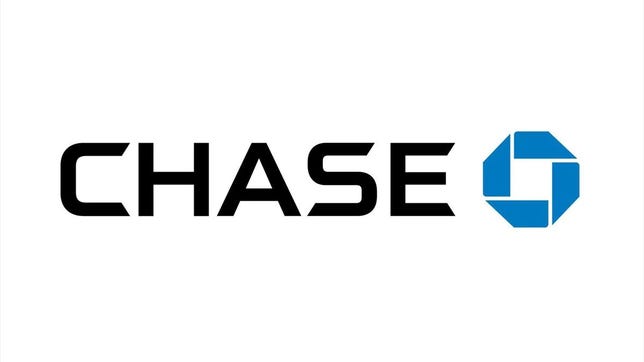

JPMorgan Chase & Co.
- APY: 0%
- Minimum initial deposit: $0
- Number of locations: 4,700
Chase Bank is the biggest US bank and offers three different business checking accounts. The Business Complete Checking qualifies for a $300 new account bonus and access to Chase QuickAccept, which accepts credit card payments on the go. The 4,700 branches and robust mobile app also make Chase a convenient banking partner for business owners. However, free in-person transactions are capped at 20 per month and there’s a $15 monthly fee unless you maintain a $2,000 minimum balance.
Pros and cons of a business checking account
Pros
- Separating business accounts from personal accounts can make tax preparation easier and avoid issues involved with commingling business and personal funds.
- Merchant accounts allow businesses to accept debit and credit card sales.
- Business checking accounts allow multiple signers to authorize transactions, make deposits and sign for debit card purchases, which enables a business owner to better delegate financial tasks.
- Business checking can help owners establish business credit.
- Business checking accounts offer services such as payroll management, bookkeeping and invoice processing.
- Establishing a business relationship with a bank can help if loan funding is required.
Cons
- Business checking accounts can include additional fees or limitations on the number of free transactions per month.
- Higher balances can be required to waive monthly maintenance fees.
How can you get the best yield on a business checking account?
To get the best return on your business finances, it’s important to research available options nationwide. Compare rates on traditional banks and credit unions, online banks and financial technology companies when searching for business checking accounts that offer the highest yield. When considering credit unions, confirm membership eligibility requirements before making a final decision.
What to consider when choosing a business checking account
Comparing business checking accounts and choosing the one that best fits your needs is crucial for the longevity of your business. Before opening a business checking account, consider which features and integrated financial tools can help your business operate more efficiently. Here are a few factors and features to consider:
- Banking services: Some banks offer features specifically for businesses, including payroll services built into the account, business credit cards, loans and merchant services that allow you to accept debit and credit card payments.
- Competitive APY: Many banks offer a competitive APY on checking and savings accounts to help you earn interest on your deposits. Keep in mind that some accounts require a minimum balance to earn a certain APY.
- Service fees: Business checking accounts can come with quite a few fees, sometimes eating away at your earnings and deposits. Look out for banks that charge foreign transaction fees, monthly maintenance fees, wire transfer fees, ATM fees and surcharges and overdraft fees.
- Introductory offer: Banks use introductory bonus offers as an incentive to open a business checking account. As a new account holder, you may qualify for a higher APY, waived fees or a cash bonus after depositing a certain amount of money or swiping your debit card for a specified number of transactions. Some of these offers require you to meet specific criteria, so read the fine print to understand how to qualify.
- Mobile app: Most banks offer a mobile banking app to conveniently check your balance, deposit checks, transfer funds and pay bills. As a small business owner or entrepreneur, mobile access lets you manage your accounts from anywhere.
- Requirements: Depending on your bank and account choice, you may be responsible for keeping a minimum balance or monthly maintenance fee. You may also have to meet certain business requirements to qualify, including a business license, Employer Identification Number and a minimum deposit.
- Physical branch and ATM access: Online banks generally charge fewer fees and offer competitive APYs, but depending on your needs, you may need easy access to a physical branch and ATMs to deposit and withdraw cash. In-person access can also be helpful for wiring money, cashier’s checks and live customer service.
Who should get a business checking account?
Whether you’re a freelancer or run a major corporation, managing your business finances in a separate checking account can make it easier to stay organized while growing your company. You’ll have business-specific banking features to help you manage your company expenses. It’s also a chance to establish a relationship with your bank for future loans, grants or additional services.
It’s the best way to manage your business expenses and transactions separately from your personal accounts. You’ll be able to keep track of your purchases and bill payments in one place, making it easier to manage cash flow and documents for applications.
Additionally, when you file business taxes, you won’t have to sift through your personal checking account to decipher which transactions are associated with your business.
If you regularly pay for software and equipment for your business, for instance, it’ll be easier to look at your business’ checking account statements to see how much you’re spending and add up the total for your taxes. Plus, keeping your business finances separate will make it easier to claim business deductions, which could potentially lower your tax bill.
FAQs
What do you need to open a business checking account?
Opening a business checking account is a straightforward process. A financial institution will require a federal tax ID number and any state documents verifying that you have formed a legal entity. You’ll need to verify your identity with a government-issued ID, such as your driver’s license. You also need to provide your Social Security number. Finally, to complete the process, deposit at least the required minimum amount to fund your account.
What is the difference between an individual and a business checking account?
Personal checking accounts are not for business use. They are intended for use by individuals to hold and manage their personal funds. A business checking account helps a business owner manage their financial transactions related to the operation of their business.
What are the minimum deposit requirements for a business checking account?
Minimum deposit requirements vary depending on the institution. A deposit requirement can range from $0 to $1,500 or more.
What type of fees are associated with a business checking account and how do you avoid them?
Business checking accounts can incur a variety of fees including:
- Monthly maintenance fees
- Transaction fees
- Out-of-network ATM fees
- Monthly statement fees
- Overdraft fees
Many of these fees can be avoided by maintaining a minimum balance, making a minimum number of debit card purchases each month, downloading a mobile app or enrolling in overdraft protection.
Methodology
CNET reviews business checking account rates based on the latest APY information from issuer websites. We evaluated rates from more than 50 banks, credit unions and financial companies. We selected the business checking accounts with the highest APYs, lowest balance requirements and best bonus offers from among the organizations we surveyed.
Banks surveyed include: Alliant Credit Union, Ally Bank, America First Credit Union, American Express National Bank, Axos Bank, Bank of America, Bank of the West, Bank5 Connect, Barclays, BMO Harris, Bread Savings, BrioDirect, Capital One, CFG Community Bank, Citizens Access, Colorado Federal Savings Bank, Connexus Credit Union, Consumers Credit Union, Discover Bank, First Internet Bank of Indiana, First Tech Federal Credit Union, FNBO Direct, GO2bank, Golden 1 Credit Union, HSBC Bank, Huntington Bank, Lake Michigan Credit Union, LendingClub Bank, Live Oak Bank, M&T Bank, Marcus by Goldman Sachs, Merrick Bank, Nationwide (by Axos), Navy Federal Credit Union, NBKC, OneUnited Bank, Pentagon Federal Credit Union, PNC, Popular Direct, PurePoint Financial, Quontic Bank, Rising Bank, Salem Five Direct, Sallie Mae Bank, Santander Bank, Synchrony Bank, TAB Bank, TD Bank, TIAA Bank, Truist Bank, U.S. Bank, UFB Direct, Union Bank, USAA Bank, Vio Bank and Wells Fargo.
The editorial content on this page is based solely on objective, independent assessments by our writers and is not influenced by advertising or partnerships. It has not been provided or commissioned by any third party. However, we may receive compensation when you click on links to products or services offered by our partners.


